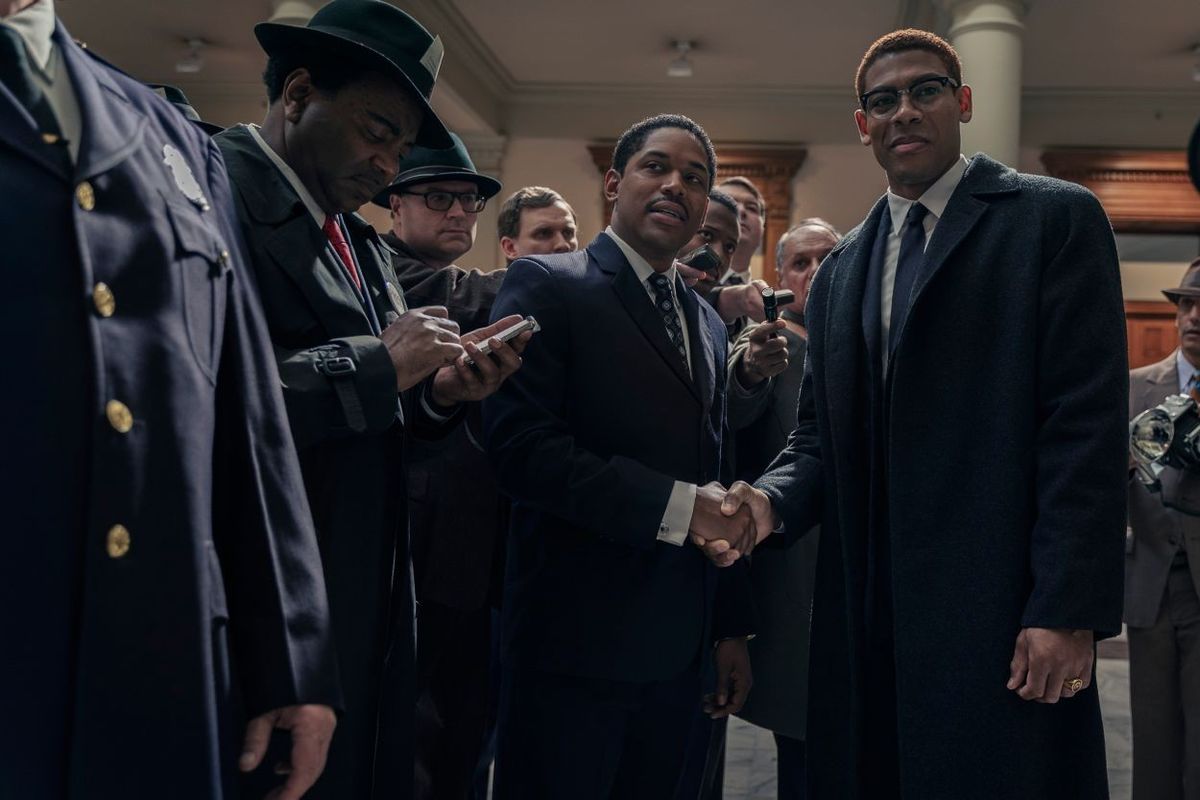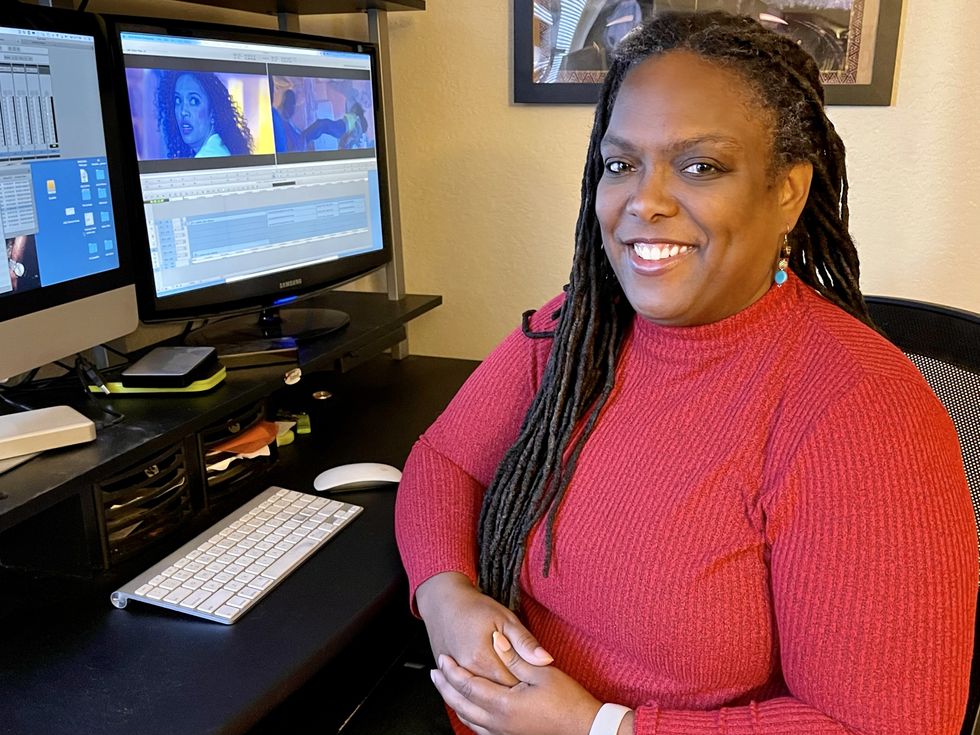
Written by Libya El-Amin
In some ways, my path towards editing on a powerful show like Genius: MLK/X felt like any good story should—surprisingly inevitable. I just took a few detours along the way.
I began my career as a Chemical Engineer, simply following the path that was laid out for me by well-meaning family and teachers. I thrived in mathematics and science as a student; where else would I take my talents?
And yet, since I was a child, I have been drawn to television above all else, filling my free time with my favorite science-fiction programs. I knew I wanted to be a part of bringing those shows to life, but growing up in the Midwest afforded me few clues on how to go about it. I scratched that itch by cutting my favorite shows to music and entering my music videos into fan contests. I did this throughout my career as a Chemical Engineer.
Eventually, I got tired of splitting my time between my office job and my hobby. I was bored out of my mind. I enjoyed solving the puzzles and equations that came with my work in engineering, but I also wanted to use the creative side of my brain.
 Libya El-Amin
Libya El-Amin
I abandoned engineering and entered the New York Film Academy in NYC. So began the long and winding road towards fulfilling my dream.
Editing always felt like an appropriate extension of my skill-set. I was still “connecting cables” much like I did as an engineer, only now I got to contribute as an entire story and world came together.
After graduating from NYFA, I moved to Los Angeles, where I worked in reality television for awhile before getting into scripted television as an assistant editor on shows like Gotham, The Last Ship, Legacies, and Insecure.
Those opportunities prepared me to sit in the editor’s chair on Hulu’s Kindred, which remains one of my favorite projects of my career. Based on the seminal sci-fi novel by Octavia E. Butler, the series featured such a fascinating and deep main character in Dana (played brilliantly by Mallori Johnson). It was very gratifying to trace her growth as a person as she is forced to go from her present-day life to pretending to be a slave in the 19th century.
I really stretched my storytelling muscles in a surprising way with the series. It dealt with emotionally dark moments yet still had a touch of humor and affection between Dana and her love interest Kevin (Micah Stock). The collaboration with showrunner Branden Jacobs-Jenkins also really elevated the show in unexpected ways. Branden crafted a spectacular journey, and I hope to work on stories that similarly delve into interesting aspects of humanity in such a gripping and genre-driven way.
After all, I will always identify as a television viewer first and foremost. When I edit a scene, I imagine myself as the viewer and construct the scene the way I would like to see it on television. That approach took on a whole new meaning when I became an editor on the fourth season of National Geographic’s Genius, focusing on the intertwining lives of Martin Luther King Jr. and Malcolm X.
Genius: MLK/X | Official Trailer | National Geographic
www.youtube.com
Genius: MLK/X marks a milestone in my career for a number of reasons. I have long admired Executive Producer Gina Prince-Bythewood —The Old Guard and The Woman King are among my favorite films of the last several years —so to work alongside her and her talented husband Reggie Bythewood was already a dream come true.
I also have a unique perspective on the show’s two subjects. My parents were both in the Nation of Islam, and I grew up deeply ingrained in the culture and religion. My father was a member of the Fruit of Islam (FOI) security wing, while my mother was involved with the female equivalent Muslim Girls Training (MGT) program (just like Betty Shabazz).
My father’s name was even Samuel X until my parents adopted El-Amin as our family name. I spent my childhood hearing stories about Malcolm and Martin that likely differ from the public narratives of the time. My father spoke of how the messages of Malcolm and Martin became more aligned later in their lives. He used to play Martin’s late-career speeches, which were rarely played in popular media. I came to the Genius editing bay with a clear idea of the goal of this series, as well as an intimate understanding of its larger-than-life characters.
My insights and expertise proved helpful throughout the editing process. At one point, I worked alongside showrunners Raphael Jackson Jr. and Damione Macedon to develop a scene in which Malcolm X would pray to Allah. I called my brothers and asked them to record themselves praying, and we integrated the audio into the show via ADR. Although that scene ultimately didn’t make the final cut, it was still incredibly fulfilling to share my background with my collaborators and inject my personal experiences into the work.
The collaborative nature of Genius: MLK/X is largely what made it such a satisfying step in my professional journey. Since COVID, working remotely had become commonplace, but sitting in the editing bay with Raphael and Damione felt like a welcome return to normalcy. I had so much fun working with them, as well as Gina and Reggie.
We worked on a two-minute montage scene for hours, and I experienced nothing but pure elation the entire time. It was a vital reminder as to why I do this work, and why I took a risk in leaving the security of Chemical Engineering behind to pursue a career in TV and film.
Catch Genius: MLK/X on Disney + and Hulu.
Author: Guest Author
This article comes from No Film School and can be read on the original site.
